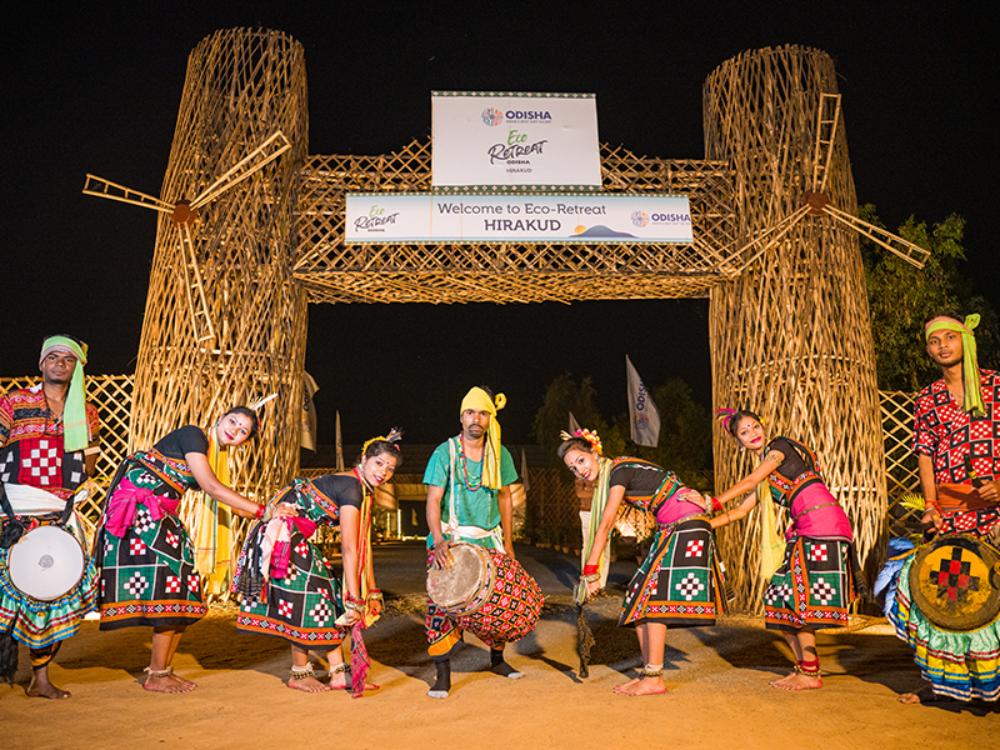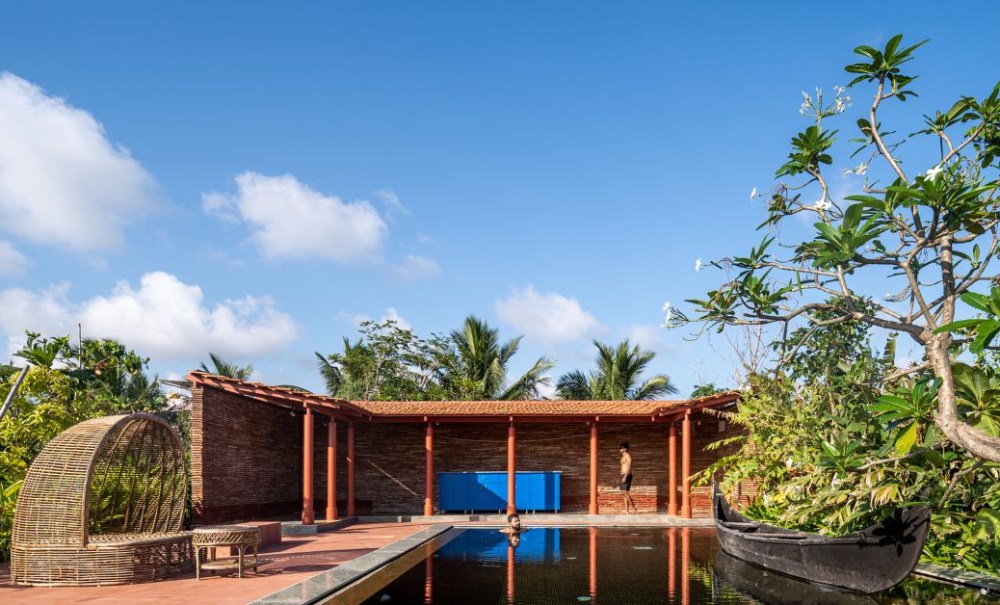Eco retreats have emerged as one of the hottest trends among Indians for an end-to-end sustainable, mindful, and immersive vacationer far from the beaten paths. The retreats offer bonding with nature, minimum ecological footprint, and a way to give back to the host community in their own small way. Among many such enriching experiences that one could avail of at an eco retreat, the chances to celebrate local festivals and events deeply imbued with the culture and heritage of the region are remarkable.
Festivals and events depict a window into the traditions, values, and history of the community. Celebrations on eco retreats form an enhancement to the travel experience and develop an understanding and appreciation for local culture. For Indian travelers, it is an opportunity to have fun on a culturally enriching, environmentally conscious holiday. This article will talk about how eco retreats set a perfect backdrop to celebrate local festivals and events. Much focus will fall on the diverse cultural heritage of India.
Part 1: Understanding Eco Retreats
1.1 What Are Eco Retreats?
The eco retreat is environmentally friendly, having low carbon emissions and respect for indigenous communities’ cultures. These retreats are fashioned to merge into nature by utilizing eco-friendly materials, renewable energy, and consummate hospitality and tourist activities in sustainable ways.
Some of the features that are characteristic of eco retreats include:
- Environmentally-friendly infrastructure: renewable resources, natural materials, and eco-friendly designs.
- Waste reduction and recycling: composting, water conservation, and minimal plastic use.
- Support to local communities: Most eco retreats combine with farmers, artisans, and local people in support of sustainable livelihoods.
- Organic and locally prepared food: Most eco retreats serve organic, locally grown food, thus supporting farm-to-table experiences.
1.2 Why Eco Retreats Are Ideal for Festival Celebrations
Eco retreats are, by nature, immersive trips, and celebrating a local festival or event would be much better in such a setting. The environment-focused approach intertwined with the aspects of local culture and natural surroundings complements the rich traditions and rituals associated with festivals. Festive celebrations at eco retreats can provide the following advantages:
- Authentic cultural immersion: The chances of getting a real taste of cultural immersion during the celebration of festivals in an area smelling of natural and local tastes will serve one better than the bustling and commercialised celebration of cities.
- Sustainable Celebrations: The eco retreats ensure that the celebration is genuinely ‘green’ by reducing the wastage and utilizing natural materials to a great extent.
- Interaction with Villages or Towns: The most idyllic feature of the fairs and festivals in an eco retreat is its interaction with villages or towns, which allows their guests to participate directly in the culture and traditions of the local people.
- Mindfulness and Serenity: The fairs and festivals celebrated within the precincts of eco retreats are far more silent and serene, offering much greater spiritual satisfaction than any commercial or metro city festival.
Part 2: Top Local Festivals Celebrated at Eco Retreats in India
From north to south, from east to west, each region is found to possess its own unique festivals that mirror its history, religion, and way of life. A few of the best local festivals that are celebrated in eco-retreats in India feature the following, allowing guests to enjoy them in a responsible and submersive manner.
2.1 Durga Puja in Sundarbans Eco Retreats (West Bengal)
Durga Puja, believed to celebrate the victory of Goddess Durga over the buffalo demon Mahishasura, is one of the most major festivals in West Bengal. While Durga Puja is celebrated with much fun and frolic in Kolkata, celebrating it in Sundarbans eco retreats has a different feel altogether, serene and an aptly eco-friendly manner of participation in the event.
- Sustainable Celebration: Eco Retreat in Sundarbans celebrates with clay idols or natural decorations. Full emphasis is given to eco-friendly measures such as the use of biodegradable materials for rituals and avoidance of plastics.
- Cultural Immersion: Several eco retreats organize traditional rituals like aarti, bhajans, and prayers by local priests during this time. Such celebrations are often accompanied by traditional folk music and dance performances from Sundarbans.
- Wildlife and Nature: Celebrations of Durga Puja in Sundarbans will offer you the unique chance to experience the rich biodiversity of the region with the famous Bengal tiger in all its grandeur amidst mangrove forests.
2.2 Pongal in Tamil Nadu Eco Retreats
Pongal is a harvest festival that falls around the middle of January every year. During Pongal, people express gratitude to the Sun God and other elements of nature for a good yield. A stay in an eco retreat during Pongal will give you an opportunity to be a part of traditional Tamil festivities in an ecology-friendly environment.
- Nature-based Celebrations: Since the Pongal rituals have their strong touch with nature, the Eco retreats add more to it by introducing ecological considerations into the celebrations. The preparation of traditional Pongal cuisine is made from organic local produce, including hands-on participation of guests in meal preparation and cooking on a communal basis.
- Traditional Activities: Preparation of the Pongal dish in clay pots, flower decoration on cattle, and intricate kolam drawings using natural powders are some traditional activities.
- Agricultural Focus: Many eco retreats are on working organic farms. There’s a visitor participation tour in harvesting crops, understanding sustainable farming practices, and taking bullock cart rides or playing village games.
2.3 Holi in the Eco Retreats of Rajasthan
Holi, the festival of colors, is one of the most enjoyed festivals in India. In an eco retreat in Rajasthan, one will have the time of their life enjoying these vibrant festivities amidst serenity and concern for the environment.
- Natural Colors: Eco retreats focus on resorting to organic plant-based colors instead of using chemical-laden synthetic colors. These natural colors are not only safe for your skin but also do not harm the environment, especially when celebrations are conducted near water bodies.
- Cultural Traditions: Traditional music, folk dances such as Ghoomar, and traditional sweets are the hallmarks of Holi in Rajasthan. Guests at an eco retreat may take part in all such cultural events and join the eco-friendly revelry.
- Sustainable Tourism: It is about staying in an eco retreat during Holi so as not to harm the environment but also contribute to the local economy. Most of these retreats organize small and intimate gatherings relating to the cultural aspects of Holi rather than the large commercial events of cities.
2.4 Bihu at Eco Retreats in Assam
Bihu is the harvest festival of Assam, but it is also celebrated thrice in a year, and Rongali Bihu in April is the most important. Actually, the day happens to mark the start of the Assamese New Year with the beginning of spring. Experiencing Bihu in an eco-retreat in Assam can be a highly rewarding experience amidst nature and rich culture.
- Cultural Experiences: Guests can be made to sit and watch traditional Bihu dances with live music that includes traditional instruments like the dhol and pepa. A few eco retreats are not averse to offering workshops on Bihu dances wherein guests can learn a few steps.
- Eco-friendly initiatives: Most of the eco retreats in Assam are made of bamboo and other natural material. The celebration of Bihu in these retreats is also coupled with organic meals comprising organically farmed ingredients, limited use of plastics, and concern for environmental conservation.
- Agricultural Connection: Agriculture is logically connected with the Bihu. Guests staying in an eco-retreat interact with the local farmers and learn about sustainable farming technique especially in the tea gardens of Assam.
2.5 Diwali in the Himalayan Eco Retreats (Uttarakhand and Himachal Pradesh)
As Diwali is the festival of lights, it is celebrated all over India. A stay in an eco retreat amidst the Himalayas is serene and spiritual. The quiet atmosphere of the mountains provides the perfect setting needed to celebrate this festival in a truly mindful and eco-friendly manner.
- Eco-friendly lights: Unlike the bursting of polluting firecrackers, the eco retreats in the Himalayas put a lot of emphasis on lighting earthen lamps, diyas, and candles that are made up of natural things. This not only preserves the environment but epitomizes the message of light over darkness that the festival is all about.
- Spiritual Reflection: Diwali is also the time for spiritual introspection. Eco retreats therefore offer sessions of meditation and yoga that help connect guests to their inner self. The tranquil surroundings of the Himalayas enhance this experience.
- Community Involvement: Most eco retreats have close cooperation with the local communities who allow guests to participate in the traditional Diwali celebrations that take place in villages close to them. This includes visiting village homes, participating in some prayers, and enjoying traditional sweets and food prepared out of organic ingredients.
2.6 Onam in Eco Retreats of Kerala
Onam is the harvest festival of Kerala celebrated with great enthusiasm in late August or early September. It is a way of experiencing the culture and traditions of Kerala in an eco-friendly manner when one celebrates Onam at any of the eco retreats in Kerala.
- Onam Sadhya: This is one of the high spots of Onam. It is a customary meal served on banana leaves that contains all kinds of vegetarian dishes. In an eco-retreat, the ingredients that go into the preparation of this feast are organic, and the meal is served communally in an environmentally friendly manner.
- Cultural Events: Most eco retreats arrange for Kathakali and Mohiniyattam dance performances, which are traditional, during the Onam festival. If the eco retreat is around water bodies, guests can participate in the Vallam Kali or boat races.
- Eco-Friendly Habits: Onam festivities at eco retreats are all about minimal wastage and natural decoration with flowers and leaves and without the use of plastic.
Also Read- Fostering Creativity: Eco Retreats and Inspiration
Part 3: Benefits of Celebrating Festivals at Eco Retreats
3.1 Eco-Friendly and Sustainable Practices
Most significantly, festivals at eco-retreats are done with a touch of sustainability. Many times, the traditional ways of celebrating the festivals involve practices that are harmful to the environment-for example, chemical-based colors used during Holi or the firecrackers used during Diwali. What is most appreciated about eco retreats is the facilitation they provide for celebrating such festivals in an environmentally friendly way. The flair of celebration does not leave behind any severe negative impacts on the environment.
3.2 Cultural Immersion
Celebrating festivals in eco retreats gives travelers an opportunity to understand and participate in the local traditions in a more organic and correct form. Most of these retreats are far off from commercialization regarding city festival celebrations. Travelers get to interact with these communities, participate in traditional rituals, and understand the cultural importance of the festivals.
3.3 Supporting Local Communities
Community-based eco retreats work with local villages and towns. The local economy also gets a boost by keeping traditional livelihoods sustained when celebrating festivals at the eco retreats. The visitor buying locally made crafts, food, and clothes during the festivals also contributes to the artisans and farmers.
3.4 Mindful and Quiet Celebrations
Festivals in eco retreats are usually much smaller and quieter compared to festivals in cities. Eco retreats offer the right environment for a mindful travel experience. Maybe the lighting of earthen lamps at Diwali in the Himalayas or celebration of the traditional Pongal in Tamil Nadu, it is a lot more about mindfulness, connectiveness, and simplicity.
Part 4: How to Plan a Festival Celebration at an Eco Retreat
4.1 Research Local Festivals
When planning your eco retreat, inquire about local festivals falling on the dates of travel. Many an eco retreat during festivals organizes events and activities that are combined in packages along with food and accommodation to make for a culturally enriching experience.
4.2 Choose an Eco Retreat Aligned to Your Values
Choose an eco retreat that resonates with your values in terms of sustainability, cultural immersion, and eco-friendly practices. Opt for retreats applying renewable energy, contributing to local communities, and practicing sustainable tourism.
4.3 Pack Mindfully
If you plan to celebrate festivals in eco retreats, then focus on packing with a conscious approach toward sustainability: all essentials are environmentally friendly-reusable water bottles, organic clothes, and natural skin care products. Avoid using single-use plastics altogether and be very mindful of your environmental footprint during your time there.
4.4 Participate in Local Traditions
Engage in every opportunity to interact with the locals, participate in their festivals, and even learn a traditional dance or two. Cook local dishes and join in religious rituals, being open and respectful of the culture.
Also Read- 10 Unique Beach Activities You’ve Never Tried Before
Conclusion: A Celebration of Culture and Sustainability
While celebrating the local festivals and events at eco retreats offers Indian travelers a different experience with the rich cultural heritage of the country in an environment-conscious manner, it gives their commitment to sustainable tourism and deep immersion of travelers into truly cultural experiences. Whether it is participating in the colors of Holi, spiritual introspection of Diwali, or the agricultural events of Pongal and Bihu, the eco retreats have made it very meaningful to celebrate the various festivals of India.
With India opening up to greener living, eco retreats and responsible celebration of festivals are gaining momentum. One helps in sustaining indigenous culture and strengthening communities by celebrating festivals at eco retreats, apart from reducing the carbon footprint. That way, festivals at an eco retreat are much more than a celebration; it is a responsible choice for the future.




